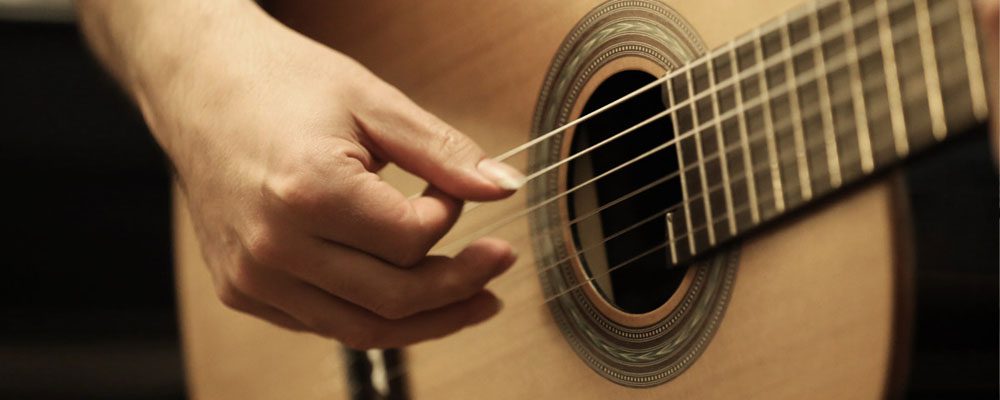Podcast: Play in new window | Download
Subscribe: Apple Podcasts | RSS

I am so excited to present my very first Podcast! I have some fantastic teachers and performers lined up to be a part of the show and I even managed to convince Evita to do an intro!
In this very first session, I look at six different ways that you can maximize your practice efforts and make progress. If you are anything like me, then you sometimes lose focus when practicing. Have a listen to these six actionable ways that you can make your practice time matter.
Please let me know if you like the podcast, I put a lot of effort in so you can get a lot out of it.
Thanks!
Simon



The podcast format is terrific — now I can “practice” classical guitar while walking my beagle!
As for your valuable technique about restricting practice to a single phrase, might I offer a tip? After too often getting sucked into the music and blowing past my intended stopping point, I finally adopted a system of visual cues: a green post-it flag marks where my practice phrase starts, and a red post-it flag marks the stopping point. Obviously any color combination would work (as would pencil marks), but the green/red combo is easy to interpret and hard to ignore. And after mastering a phrase, I simply re-locate the post-it flags to my next phrase. No messy erasures.
Ok, gotta go enter my subscription so that I don’t miss future podcasts.
P.S. Welcome aboard, Evita. Job well done!
Patti
This was a most excellent discussion on proper practice techniques. I am currently trying to unlearn years of poor practice habits and so this is an area where I need all the help I can get. Thanks so much for sharing your ideas with us. Please keep these podcasts coming in our direction. Again, many many thanks!! All your efforts are well appreciated!
Thank you Simon, for putting together this podcast.
All of your suggestions about productive practice are great, in particular your points about restricting yourself to small phrases and practicing slow. I have found that by practicing with these two things in mind has helped me discover new, better (easier) fingerings on both hands, realize I was actually playing a wrong note, and better understand the music.
Keep up the good work!
David
You are very welcome, David.
Thanks for listening!
Simon
Hi Simon
Thanks for a wonderful podcast! It is great to hear another Aussie voice :-)
Cheers from down under
Steve
Hi there Dr Powis,
I have thoroughly enjoyed listening to your podcast. What I have found most enlightening is that the ideas you suggest for better practice apply to all forms of creative endeavour – music, art, and dance among them. It is so easy to get caught up looking at the whole piece – the end product – and wanting to get there and getting frustrated when this doesn’t happen. By breaking the whole down to its parts and practising individual aspects over and over, one gets towards the whole in a more satisfying manner.
Thank you for your enlightenment and I shall now go and practice individual elements.
Judi
Hello! Great podcast on practising and beautiful, beautiful rendition of MG’s Rossiniana to top it all! Please keep the podcasts rolling, not only very informative but the candid tone is so refreshing too, I can’t wait for the next one to listen to.
Thanks for all the efforts!
Best from London,
Manolo
Hi Manolo,
Thanks for the encouragement, I will keep working hard to make it better.
Best from New York,
Simon
Fabulous Podcast Simon – really helpful – packed with some great ideas and tools. I have forwarded this onto the members of my concert band – I play the Euphonium in a community band and these ideas are really sensible for any instrument.
I am find the course work very well structured and I think my family is enjoying the rehearsal time on the guitar more than the do on the Euphonium!
Can I add my thanks to you for the really nice podcast.
It’s only recently that I have put some thought into how I structure practice and so this is timely. I like the idea of putting time limits on practice and having a range of challenges.
I have already found, as a newcomer to classical guitar but not guitar itself, that the challenge of playing anything well can seem overwhelming when you consider all the various aspects that need to be secure. At the moment I have a daily segment of left hand and right hand technical studies and then I move onto the study pieces I am learning. However, this podcast has made me realise that need to break things down much further.
My problem is that I don’t only place classical guitar and so I divide my practice up and work on acoustic and singing songs.
I understand what you are saying. I also play steel string and mandolin in a band and it can be quite a juggling act to stay on top of all of them! Thanks for your support.
Dear Maestro, I couldn’t agree more! Short, focused practice sessions does work best for me; and, as you pointed out… as in Rene’s example… regardless of the length of our practice, IF it’s a solid and focused practice, every single second, every single minute, IS accumulative! They all add up in the end. If I’ve said this once, I’ve said it a million times: It’s not the destination, it’s the journey. If we’re working on scales, then focus on THAT scale, each independant note! Same goes with anything, whether if we’re working on a piece of music or just practicing our technique. Patience with ourselves and a complete trust in the process is THE key! Enjoy everything! All too often, the beginner (and sometimes even the intermediate and advanced student) feels that working the fundamentals are boring and a waste of time; they are not. Get lost in them! If we’re practicing arpeggios or scales, let the beauty of each note’s tone wash over us like a cascading waterfall. Always remembering that without that solid foundation, the whole thing will fall apart sooner or later. Sorry for being so long winded, but you inspire and motivate me. Thank you for that!
Mark
Hi Simon – I love the podcasts. I have a little history with your work having bought the scale book and other items a few years back. I have been studying and playing classical guitar for many years and had a career teaching and performing that I put on the back burner while raising a family. Now a grandfather, I have more time to play and at age 70 (a young 70) I’m finding your work to be extremely helpful. I must tell you that the first thing that hooked me in is the chord progression that you use in the 5 practice routines. First appearing as Right Hand Warm Up on the Mean Tone Monday page, I fell in love with the sound of those 4 triads and was reminded of Phillip Glass for some reason! Really cool and very effective warm up too. Your work is helping me attend to weaknesses I’ve developed and am working to overcome. You have a wonderful gift, many gifts actually – as a player (bravissimo) a teacher and a communicator. Thanks so much and I wish you every success.
Lou Arnold
Thanks so much, Lou. I like that little chord progression too and I was listening to a lot of Phillip Glass at the time so I don’t think it is any coincidence!
Thank you Simon for these invaluable concepts.
Brilliant playing. Really enjoyed this podcast from beginning to the end.
Thank you
Jimmy
Simon,
It is enjoyable listening to talk about guitar. Informal, intelligent, informative and provocative. I listened to a couple of your podcasts this morning while I was french polishing guitars. Thanks, I’ll be here again.
Hi Simon,
This was a really sound, well structured, and beautifully ornamented podcast.
Your thoughts about a time limit and frequent breaks while practicing, reminded me of the Pomodoro technique, which obviously can be applied to any learning process. And being focused and enjoying the little bit one is working on, resembles some sort of “carpe diem”, which I agree with.
What to say about your playing at the end? What a wonderful way of rounding off this podcast.
Thanks for all your effort to producing such a great and unique corner.
All the best,
Basi.
Hi Basi,
Really glad you enjoyed it! Thanks for your comment.
Peace,
Dave B (CGC team)
Excellent.
I am now much SMARTer in understanding my practice goals.
Thanks.
Hi Ian,
Funny you should mention the SMART goals I have just been reading a book by Charles Duhigg where he talks all about them!
Nothing new under the sun…
I was listening once again to this episode on practice technique and it’s always good for reinforcement and learning something that I may have missed. I have a book called ” THE ART OF CLASSICAL GUITAR PLAYING” by Atlantas Charles Duncan. He teaches the reader to plant the picking fingers on the strings, find the chord or the note with the chording hand and then play. It’s slow, mechanical work to begin with but when played up to speed it produces a high degree of articulation and fluidity. I was wondering what others think of that. Love your podcast Simon!
thanks for making these simon. i enjoyed listening.
I will try to make my practice perfect by starting off slowly ,thanks for the knowledge you share,just wonderful listening to your music with the guitar.Thank you Simon.
thank you so much, it’s very helpful to me.
Love this podcast so much that I have decided to become a member
Thank you Simon
Steve Peake
Dr. Simon. — Excellent Podcast. Among other benefits, it has prompted me to return to some pieces I’ve long discarded as being “too hard”. Thank you so much!
Wayne
As music lover, I enjoy those notes springing out from your fingers a lot. They let me feel the true music art which always tells stories touching my heart. As an old man, I just want to pick up my childhood dream by learning guitar that may slows down my aging. Have a lovely day.
Thank you very much